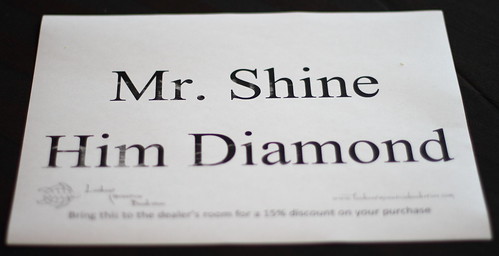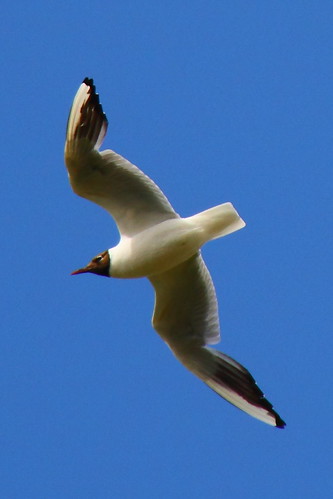“An enormous conflict between words and deeds is prevalent today: everyone talks about freedom, democracy, justice, human rights, about peace and saving the world from nuclear apocalypse; and at the same time, everyone, more or less, consciously or unconsciously, serves those values and ideals only to the extent necessary to serve himself and his “worldly” interests, personal interests, group interests, power interests, property interests, and state or great-power interests…So the power structures apparently have no other choice than to sink deeper into this vicious maelstrom, and contemporary people apparently have no other choice than to wait around until the final inhibition drops away.
But who should begin? Who should break this vicious circle? Responsibility cannot be preached but only borne, and the only possible place to begin is with oneself.”
– Vaclav Havel, Letters to Olga, 1988
Month: March 2015
{…there are days i wonder how on earth …?!}
“Do I like being a writer? I love it. I often tell my husband that it’s the only job I could hold now. I’m spoiled. I work at home in my own study, wearing whatever I please. I never have to call in sick. From time to time, I get to schools and other places where I meet delightful people who love books as much as I do.
But there are days when I wonder how on earth I got involved in this madness. Why, oh why, did I ever think I had anything to say that was worth putting down on paper? And there are those days when I have finished a book and can’t for the life of me believe I’ll ever have the wit or will to write another.”
~ Katherine Paterson, in a 1996 interview
Yeah, Mrs. P., I feel ya.
{goodbye to the wit and wisdom of sir terry}
Oh, Mr. Pratchett. You were a diamond, too.
And now comes the time for the wearing of the lilac…
It’s a bit of irony that I think would amuse Terry Pratchett: after all of his advocacy for assisted suicide and the right to die, he passed away in his sleep.
He wrestled Alzheimer’s to the ground – and won.
Happy are those who live life on their own terms, all the way to the last day.
Godspeed, Sir Terry, and thanks for all the books, and all the worlds you shared; flat ones atop elephants and a ginormous, improbable turtle, deep ones, in the nap of the carpet, crumbly ones, well dug into dirt, high ones in Dunmanifestin or the Ramtops, and little ones inside our hearts, patrolled by verbose frogs, illogical blue men and irascible – and far more importantly, incorruptible watchmen. Quis custodiet ipsos custodes? You. Always. And you showed us how to watch ourselves.
Boy, were you loved, and will be missed and mourned so very much.
{the poetry seven sestina}
Why, yes. Sestina, in this case, IS a verb. It’s kind of like …to sashay. Or to salsa. It’s a complicated thing, and you have to move your hands, and throw around your hips just right. Or, your words. Whatever.
ses·ti·na
/seˈstēnə/ n: Prosody
plural noun: sestinas
A poem with six stanzas of six lines and a final triplet, all stanzas having the same six words at the line-ends in six different sequences that follow a fixed pattern, and with all six words appearing in the closing three-line envoi.
The form of a sestina is one of the most complex I’ve attempted – and I’ll admit that the last time I tried this, three years or so ago, it Did Not Go Well. I never posted the attempt. This time, we all told ourselves that No Matter How Bad, It’s Going Up. Because of the form – the repetition in the end words in six, six-line stanzas (and the three line envoi, which comments on the previous poem and allegedly wraps the whole thing up) – this poem can quickly become either sternly didactic or repetitively silly. I didn’t worry about that, when I wrote mine, to be honest. I worried about finishing it in time, and making the meter pace out nicely for me.
Not a ONE of us is absolutely satisfied with our attempts. We move on anyway…
About the pacing: Though there is no meter requirement nor rhyming, I am a rule-junkie, and my rule seems to fall into three-quarter time, or thirds… and I can’t really explain how that touches on words, but I know that in music, that’s my preference – thirds and waltz-time. At any rate, I tied my words to an internal rhythm other people don’t need to use. You’ll sense more freedom and flow in other people’s sestinas – I’m just not there yet, though someday, who knows.
torch in my pocket, face to the wind.
“You must begin to finish,” just makes sense,
So, “boldly go;” throw caution to the wind.
Take risks. Put all your eggs into one cart.
When down, the only place to go is up.
(While time does make things clearer, in its turn,
Within its cure, use silences to hear.)Toward seasons, partners, states – all altered here –
Reality sends weary hearts the scents
Of sea change. Peace! You know which way to turn
So let your face be scoured by the wind.
Since truth is not exhausted, or used up,
Be certain. Hitch this star to your small cart.“Time healeth” all in pieces, a la carte.
One day we’re blind, the next, begin to hear,
We move, first back, then forward, get tripped up
And grimly wish we’d shown our better sense.
We weep for sun at midnight, chase the wind —
Plunge headlong towards dark currents, like a tern.From flailing in that dimness, now we turn
And fling our mildewed sorrows in a cart
Our path to this low state we now re-wind
To ascertain where we can go from here.
Rock bottom, having bargained our last cents,
What’s left is to go on. Hold your head up.It might seem advocating giving up,
To let life’s tides just carry you a turn,
But we learn first to float, in any sense,
(Don’t NASCAR racers start out with go-karts?)
And babies must crawl first, or so I hear.
To learn to fly, first turn your face to wind.From waves, onto the land, and on the wind
The path evolves: we swim, we crawl, stand up,
We babble, then we finally learn to hear.
The wind goes where it wishes, and we turn
And glide through life’s rich bounty, fill our cart
The joy of life in every savored sense.
We fight it, first, when in the wind we turn,
As shaken up, it rolls our apple cart –
Yet hear within its roar, the sound of sense.
There’s more poetry abroad today by the Poetry 7 – thematically, there’s a lot of winter, winter, go away going on, but what it turns into is amazing — as in Kelly’s poem about weather and human will; Andi’s tale of hornets, fishing, and survival; Tricia’s gritty push back against the cold, Liz pondering things which are only as stable as they appear; Laura’s farmyard parable with the four-legged tractor in revolt. Poetry from Sara next time; she’s opted to FINISH HER NOVEL in lieu of sestina-ing this month, and her agent and editor are certainly happy, and we are happy for her.
The Poetry Friday Roundup is at Robyn Campbell’s blog for more. Happy Friday (at last!)
{aim above}
“Do not be too moral. You may cheat yourself out of much life so. Aim above morality. Be not simply good — be good for something.“
~ Henry David Thoreau, in a letter to Harrison Blake
WORD, Thoreau. Even though much of your writing has that 19th century high-toned critical thing going on, every once in awhile, you hit me right.

